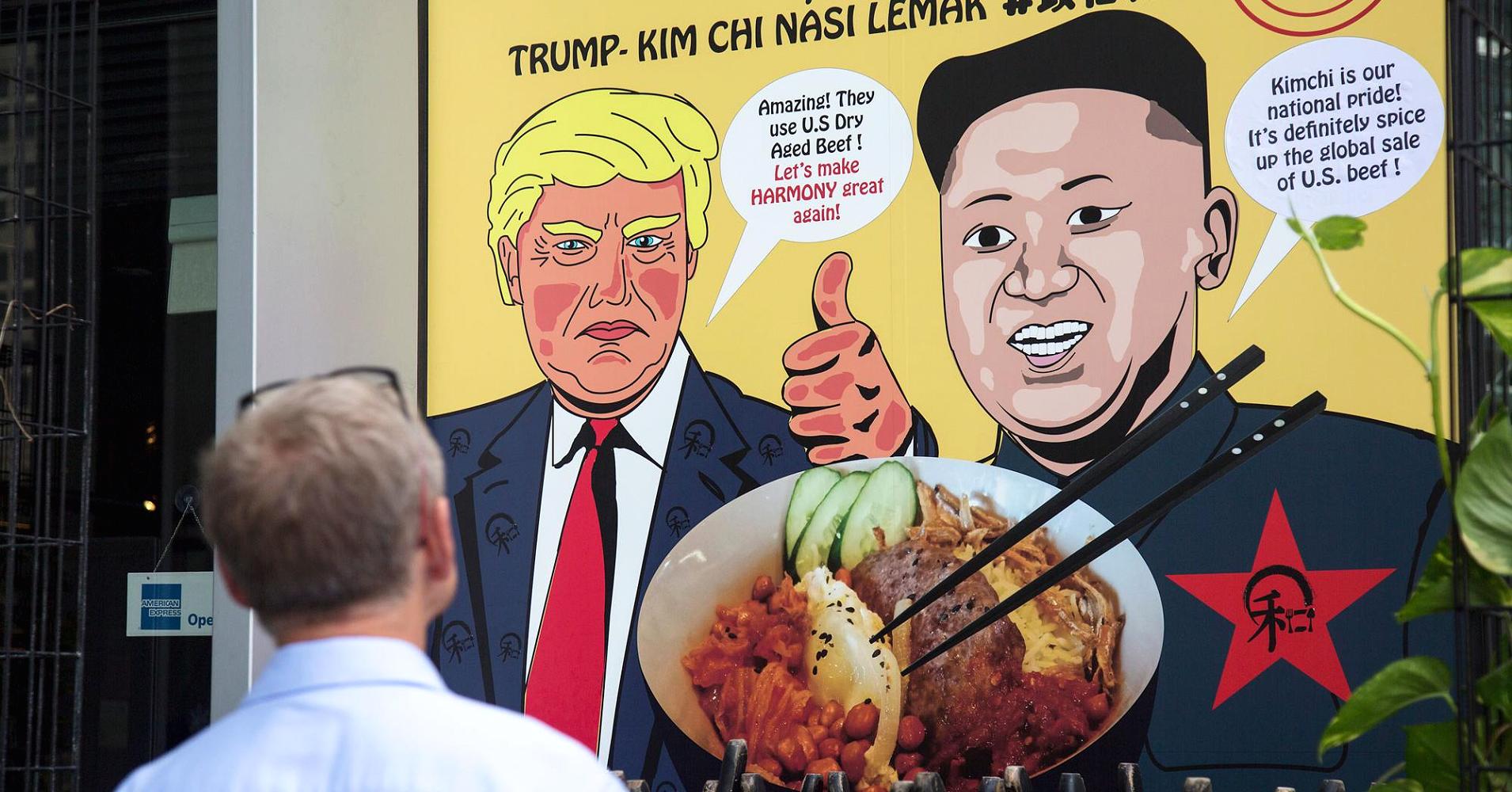
Immediate denuclearization has long been Washington’s stated goal on nuclear diplomacy with Pyongyang. But now that President Donald Trump has noticeably softened his tone on that front, many are wondering whether he will still pressure North Korea’s Kim Jong Un next week.
Trump confirmed the June 12 summit was back on after initially canceling the high-stakes meeting. He also indicated that any kind of deal on denuclearization would likely be discussed over multiple meetings. “We’re not going to go in and sign something on June 12 … We’re going to start a process,” he told reporters.
It was a dramatic change in course from the president, who previously insisted the reclusive regime surrender its weapons arsenal in a “complete, verifiable and irreversible” manner.
Trump’s shift to a less hard-line position “is fueling concerns that he will not press hard in Singapore to extract a clear promise from Kim to achieve ‘complete, verifiable, and irreversible denuclearization’ in a short period of time,” analysts at political consultancy Eurasia Group said in a note.
Trump has also retreated from using the term “maximum pressure,” a policy consisting of strict sanctions, diplomatic actions and military threats that’s long been the cornerstone of his North Korea policy. “We’re getting along, so it’s not a question of maximum pressure,” he said on June 1.
The president is now recognizing the reality of the situation, according to Tom Collina, director of policy at Ploughshares Fund, a public foundation against nuclear weapons.
“Trump is still pushing for denuclearization, as he should, but he now has more realistic expectations for how long it will take,” he explained, adding that “as long as the North is not conducting nuclear and missile tests, there is no rush.”
Trump’s new measured approach now appears to be more in line with the preferences of Kim’s government, which wants a nuanced, lengthy process of disarmament accompanied by concessions such as sanctions relief and security guarantees.
Instead of producing a concrete deal, the June 12 summit will set the stage for “a lengthy, step-by-step process for negotiating and implementing pledges by both sides to work towards North Korea’s denuclearization that results in Kim giving up some, but certainly not all, of his nuclear capabilities,” the Eurasia Group analysts said.
However, that process entails several risks that could produce a diplomatic breakdown and see Washington pivot back to “maximum pressure.”
For one, “Trump might get frustrated with the slow pace of progress on denuclearization and feel it is exposing him to criticism that he is getting played by Kim,” the Eurasia Group warned. Kim may also decide that he is not getting enough concessions out of the process and thus opt to withdraw, it continued.
“Much can still go wrong,” echoed Bruce Jones, vice president and director of the foreign policy program at think tank the Brookings Institution, adding that “the risks of war are higher now than before the drive to the summit.”
By conveying to Kim that he is genuinely willing to go to war, make peace, and walk away from a deal if it is not a good one, Trump has confronted Kim “with an existential choice: a genuine deal, or war,” Jones explained.

